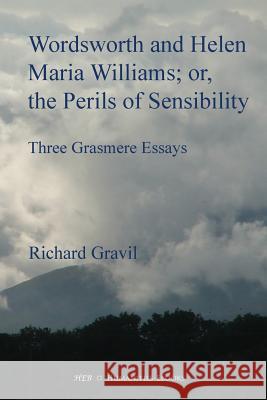Wordsworth and Helen Maria Williams; or, the Perils of Sensibility » książka
Wordsworth and Helen Maria Williams; or, the Perils of Sensibility
ISBN-13: 9781847600950 / Angielski / Miękka / 2010 / 124 str.
This book examines the connection between William Wordsworth and the work of Helen Maria Williams and the effect this connection may have had on his reception by such hostile critics as Francis Jeffrey. Why did Wordsworth write his first published poem to Helen Maria Williams? What role did she play in forming his views of poetry, and of the French Revolution? Why was Wordsworth able to recite in 1820 a poem by Miss Williams that he first read in 1790? Was his own poetical sensibility comparable with that of the older woman? Did the reception of Wordsworth's Poems, in Two Volumes by Francis Jeffrey and others -as 'puerile', 'namby-pamby', 'lisping' and 'affected' - reflect a belief that manly sense and feminine sensibility, are not compatible? If so, why did Wordsworth run that risk? This little book attempts to suggest answers to some of those questions, and to provoke more systematic considerations of them all, and of Wordsworth's daring reconfiguration of 'manliness'.
This book examines the connection between William Wordsworth and the work of Helen Maria Williams and the effect this connection may have had on his reception by such hostile critics as Francis Jeffrey. Why did Wordsworth write his first published poem to Helen Maria Williams? What role did she play in forming his views of poetry, and of the French Revolution? Why was Wordsworth able to recite in 1820 a poem by Miss Williams that he first read in 1790? Was his own poetical sensibility comparable with that of the older woman? Did the reception of Wordsworths Poems, in Two Volumes by Francis Jeffrey and others -as puerile, namby-pamby, lisping and affected - reflect a belief that manly sense and feminine sensibility, are not compatible? If so, why did Wordsworth run that risk? This little book attempts to suggest answers to some of those questions, and to provoke more systematic considerations of them all, and of Wordsworths daring reconfiguration of manliness.











